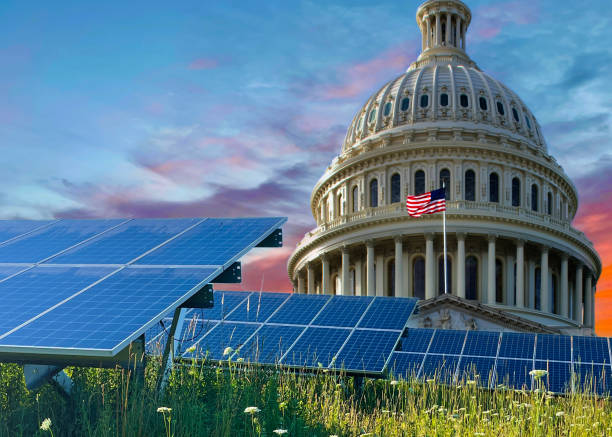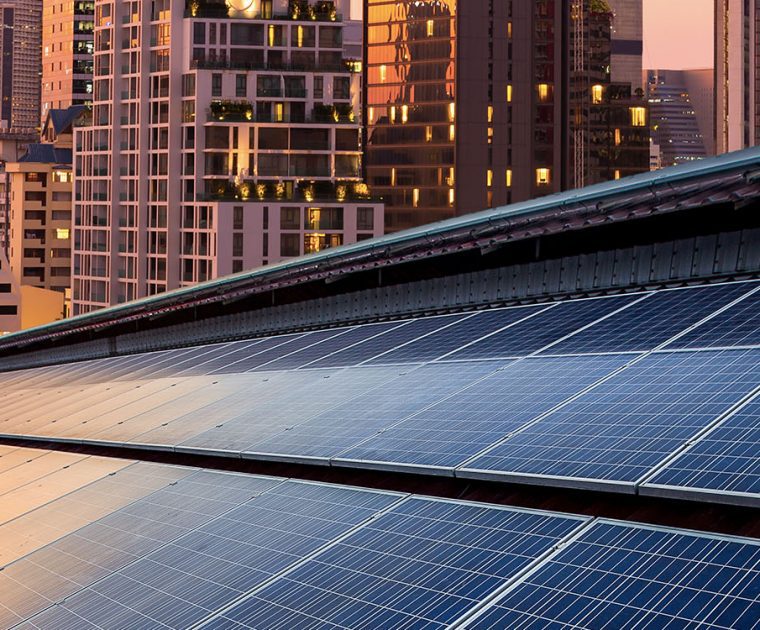Municipalities across the world are turning to solar energy as a sustainable solution to rising energy costs, environmental concerns, and the push for energy independence. By investing in solar infrastructure, local governments can not only reduce their carbon footprint but also save taxpayers money and create a more resilient energy system.
Why Municipalities Are Embracing Solar Energy
1. Cost Savings One of the biggest drivers for municipalities to adopt solar power is the potential for long-term savings. Traditional energy costs fluctuate, but solar provides a stable and predictable source of power. Once installed, solar panels require minimal maintenance and can generate free electricity for decades. Key financial advantages include:
• Reduced Energy Bills – Municipalities can generate their own electricity, significantly cutting utility expenses for government buildings, schools, and public facilities.
• Fixed Energy Costs – Solar energy shields cities from rising electricity rates, allowing for better long-term budgeting.
• Revenue Generation – Some municipalities lease public land for solar farms, generating revenue from private energy developers.
• Incentives & Tax Credits – Federal and state incentives, grants, and tax credits lower the cost of solar installations, making projects more affordable.
• Power Purchase Agreements (PPAs) – Cities can partner with private solar developers to install solar panels at no upfront cost, paying only for the electricity produced at a lower rate than utility prices.
2. Environmental Benefits Switching to solar helps municipalities meet sustainability goals by reducing greenhouse gas emissions. Solar power decreases reliance on fossil fuels, improving air quality and combating climate change. Many cities are now committing to 100% renewable energy goals, with solar playing a crucial role.
3. Energy Resilience & Reliability Solar energy, especially when combined with battery storage, enhances energy resilience. In cases of power outages or extreme weather events, municipalities with solar infrastructure can keep critical services operational, such as emergency response centers, water treatment plants, and public buildings.
4. Economic Growth & Job Creation The solar industry creates jobs at the local level, from manufacturing and installation to maintenance and system monitoring. Municipal solar projects can stimulate the local economy by providing employment opportunities and attracting clean-energy investments.
Ways Municipalities Can Implement Solar Power
1. Solar on Public Buildings Energyware is assisting municipalities with installing solar panels on schools, libraries, fire stations, and government offices. These buildings typically have large rooftops, making them ideal for solar installations.
2. Community Solar Projects Community solar allows residents and businesses to buy into a shared solar farm without needing panels on their own properties. Municipalities can develop these projects to offer affordable solar power to lower-income households.
3. Solar-Powered Streetlights & Infrastructure Solar-powered streetlights reduce electricity costs and improve public safety. Some cities are even integrating solar energy into transportation infrastructure, such as bus stops, EV charging stations, and solar roadways.
4. Incentive Programs & Public-Private Partnerships Municipalities can encourage solar adoption by offering incentives like tax credits, grants, and streamlined permitting. Public-private partnerships also help cities expand their solar capacity without major upfront costs. Challenges & Solutions While the benefits of solar energy are clear, municipalities often face barriers such as high initial costs, zoning regulations, and grid integration challenges. However, solutions like power purchase agreements (PPAs), state and federal grants, and innovative financing models are making solar adoption easier and more affordable.
The Future of Municipal Solar As technology advances and costs continue to decline, more municipalities will turn to Energyware for solar energy solutions to power their communities. By taking proactive steps today, local governments can create cleaner, more energy-efficient cities while setting an example for sustainable progress. Whether through rooftop panels, large-scale solar farms, or solar-powered infrastructure, municipalities have a unique opportunity to lead the way in the renewable energy revolution.
Ready to explore solar power for your business?
Click here and contact us today to learn more about sustainable solutions and financing options!









